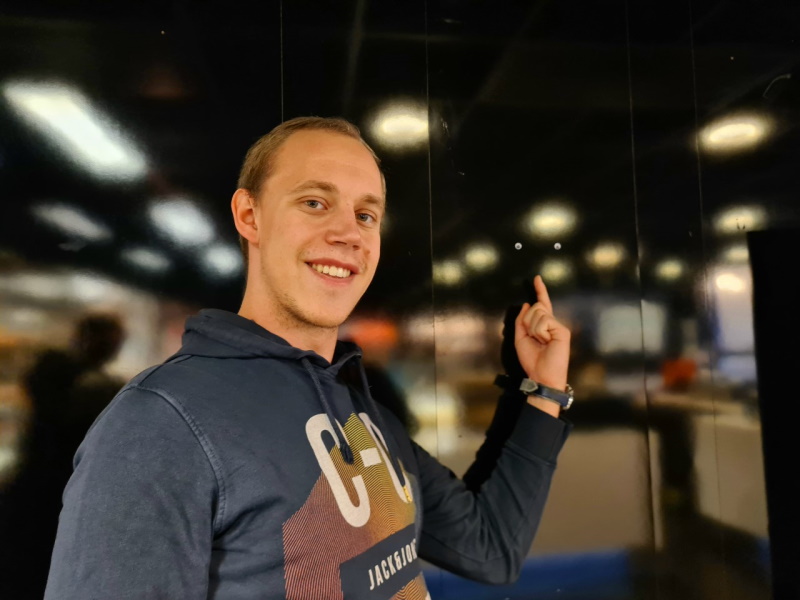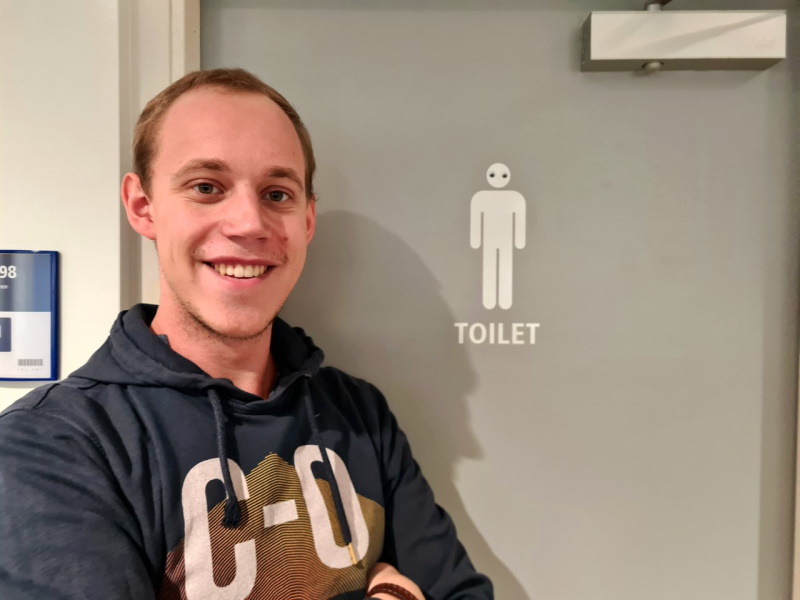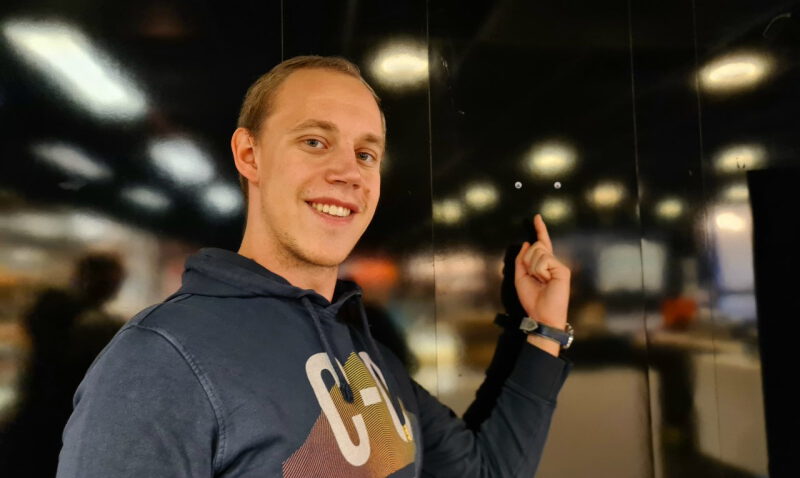Chances are you’ve spotted them on campus: two googly eyes. On the little male symbol on the toilet door, or on the green lid of the trash can. In 2020 @oogje_op_windesheim started as an anonymous project, but the team is now public. “There is a taboo on mental health, which we should talk about.”
“It started as a joke at first, where I started sticking those googly eyes on things at school,” says Daniël Ekeler, the inventor of ‘Oogje op Windesheim’. “But I soon wanted to attach a serious message to it.

Especially after the second lockdown, I saw that there were many problems with mental health among students. I started to wonder: what can I do about that?” The problem really became clear to Daniel when he received a call from a friend from my high school in January. “A classmate I looked up to had passed away. It was only after a while that I found out that he had committed suicide. No one dared to talk about this.”
That was when Daniel realized the taboo surrounding mental health. “It is a social problem that forms a huge knot. Talking about it is the first thing that helps to unravel the rest. Of course, all sorts of factors further confuse things, but that’s the start.”
The team behind the eyes
Because of the attached wiggle eyes, you are literally keeping an eye on each other. Daniel hopes it will stand out, but also that it will make people think: oh, how are you really, and how am I?
The Oogje op Windesheim team now consists of three people. In addition to Daniël, Lisa Molenaar and Nora Wesseling are also part of it. They work together with Mind Me, a project from Windesheim, where students and lecturers jointly conduct research into the mental health of students and organize initiatives.

An example of this is something Daniel came up with in April this year. Students could leave a message on a large white eye full of yellow Post-it memos. The eye pupil asked a question: ‘How do you really feel now?’ Daniel thought it was a successful project: “It allowed people to show and see for themselves that they are not alone. It’s hard to admit things like this, so this is a good outlet.”
The biggest goal for Daniel and the rest of the team is to be able to help people. “I want people to feel heard and seen. That seems very nice. It’s not about the size of the projects. If I’ve been able to mean something to one person, that’s already great. Then I could make the difference.”
Text and photos: Serena Caruso
